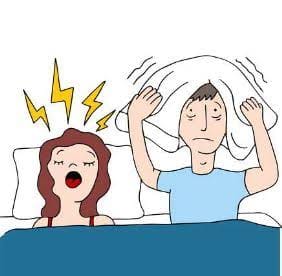Say Goodbye to Snoring - Effective Ways to Silence the Night

Understanding Snoring: Causes and Risks
Snoring is a common phenomenon that affects millions of people worldwide, causing disruptions in sleep patterns and impacting overall well-being. To effectively address snoring, it's essential to understand its causes and associated risks.
The Science Behind Snoring
Snoring occurs when air flows through the throat, causing tissues to vibrate. This vibration produces the characteristic sound of snoring, which can range from soft and gentle to loud and disruptive.
Key Contributors to Snoring
Several factors can contribute to snoring, including:
- Obesity: Excess weight can lead to fat accumulation in the throat, narrowing the airway and causing tissues to vibrate.
- Sleep Position: Sleeping on your back can cause your tongue and soft palate to relax, obstructing the airway and leading to snoring.
- Nasal Congestion: A blocked nose can force you to breathe through your mouth, increasing the likelihood of snoring.
- Smoking: Smoking can cause inflammation and irritation in the throat, leading to snoring.
The Risks of Untreated Snoring
While snoring may seem harmless, untreated snoring can lead to serious health issues, including:
- Sleep Apnea: Snoring can be a precursor to sleep apnea, a condition characterized by pauses in breathing during sleep.
- Cardiovascular Disease: Chronic snoring has been linked to an increased risk of heart disease, high blood pressure, and stroke.
- Other Health Issues: Snoring has also been linked to other health problems, such as daytime fatigue, headaches, and decreased cognitive function.
Lifestyle Changes to Stop Snoring
Snoring can be a real nuisance, disrupting your sleep and that of your loved ones. The good news is that there are several lifestyle changes you can make to help silence the night. Here are some effective ways to stop snoring:
Sleep on Your Side
Sleeping on your side can help reduce snoring by preventing your tongue and soft palate from falling back and blocking your airway. Try using a body pillow or a pillow wedge to keep yourself on your side throughout the night.
Lose Weight
Excess weight, particularly around the neck, can increase fatty tissue in the throat, leading to snoring. Losing weight through a healthy diet and regular exercise can help decrease fatty tissue and reduce snoring.
Quit Smoking and Avoid Alcohol Before Bedtime
Smoking and alcohol consumption can relax your throat muscles, leading to snoring. Quitting smoking and avoiding alcohol for at least four hours before bedtime can help reduce snoring.
Try Nasal Strips or Dilators
Nasal strips or dilators can help improve airflow through your nose, reducing the likelihood of snoring. These simple devices can be found at most pharmacies or online.
By incorporating these lifestyle changes into your daily routine, you can say goodbye to snoring and hello to a peaceful night's sleep.
Medical Devices and Treatments
Effective Solutions to Silence the Night
For individuals who struggle with snoring, medical devices and treatments can offer significant relief. These solutions target the root causes of snoring, providing effective ways to reduce or eliminate the disturbance. Let's explore three key options:
Anti-Snoring Mouthpieces or Mouthguards
Custom-made mouthpieces or mouthguards are designed to adjust the position of the lower jaw and tongue, preventing the obstruction of the airway. These devices can be obtained through a dentist or purchased over-the-counter. By wearing an anti-snoring mouthpiece or mouthguard, individuals can experience a significant reduction in snoring frequency and intensity.
Continuous Positive Airway Pressure (CPAP) Devices
CPAP devices are recommended for individuals with obstructive sleep apnea (OSA), a common cause of snoring. These devices deliver a constant flow of air pressure into the airway, keeping it open during sleep. CPAP therapy is highly effective in reducing snoring and improving overall sleep quality.
Surgical Options for Severe Cases
In severe cases of snoring, where other treatments have proven ineffective, surgery may be recommended. Procedures such as uvulopalatopharyngoplasty (UPPP) or maxillomandibular advancement (MMA) can help to remove excess tissue or adjust the position of the upper airway, reducing snoring and improving breathing.
Natural Remedies to Stop Snoring
Snoring can be a frustrating and disruptive issue for both the person snoring and their partner. While there are many over-the-counter solutions available, there are also several natural remedies that can help alleviate snoring. Here are a few effective ways to silence the night:
Intranasal Decongestants or Steroid Sprays
Intranasal decongestants or steroid sprays can help reduce nasal congestion, which is a common cause of snoring. By using these sprays, you can help keep your nasal passages clear, making it easier to breathe and reducing the likelihood of snoring.
Elevate the Head of Your Bed
Elevating the head of your bed can help improve airflow and reduce congestion in the nasal passages. This can be done by placing blocks or books under the legs of your bed or using a wedge pillow. By elevating your head, you can help reduce the pressure on your nasal passages and throat, making it easier to breathe and reducing snoring.
Regular Exercise and a Healthy Diet
Regular exercise and a healthy diet can help improve overall health and reduce snoring. Exercise can help improve cardiovascular health, reduce weight, and improve muscle tone, all of which can help reduce snoring. A healthy diet can also help reduce inflammation and improve overall health, making it easier to breathe and reducing snoring.
When to Seek Medical Attention
While lifestyle changes can help alleviate snoring, there are instances where medical attention is crucial. If you've tried various remedies and still find yourself snoring persistently, it's time to consult a doctor. Here are some scenarios where medical help is necessary:
Persistent Snoring Despite Lifestyle Changes
If you've made significant changes to your lifestyle, such as losing weight, quitting smoking, or sleeping on your side, but still snore regularly, consult a doctor. Persistent snoring can be a sign of an underlying health issue that needs medical attention.
Accompanying Sleep Apnea, Morning Headaches, or Daytime Fatigue
Snoring can be a symptom of sleep apnea, a condition where you stop breathing for short periods during sleep. If you experience sleep apnea, morning headaches, or daytime fatigue, seek medical help. These symptoms can lead to severe health complications if left untreated.















Comments ()